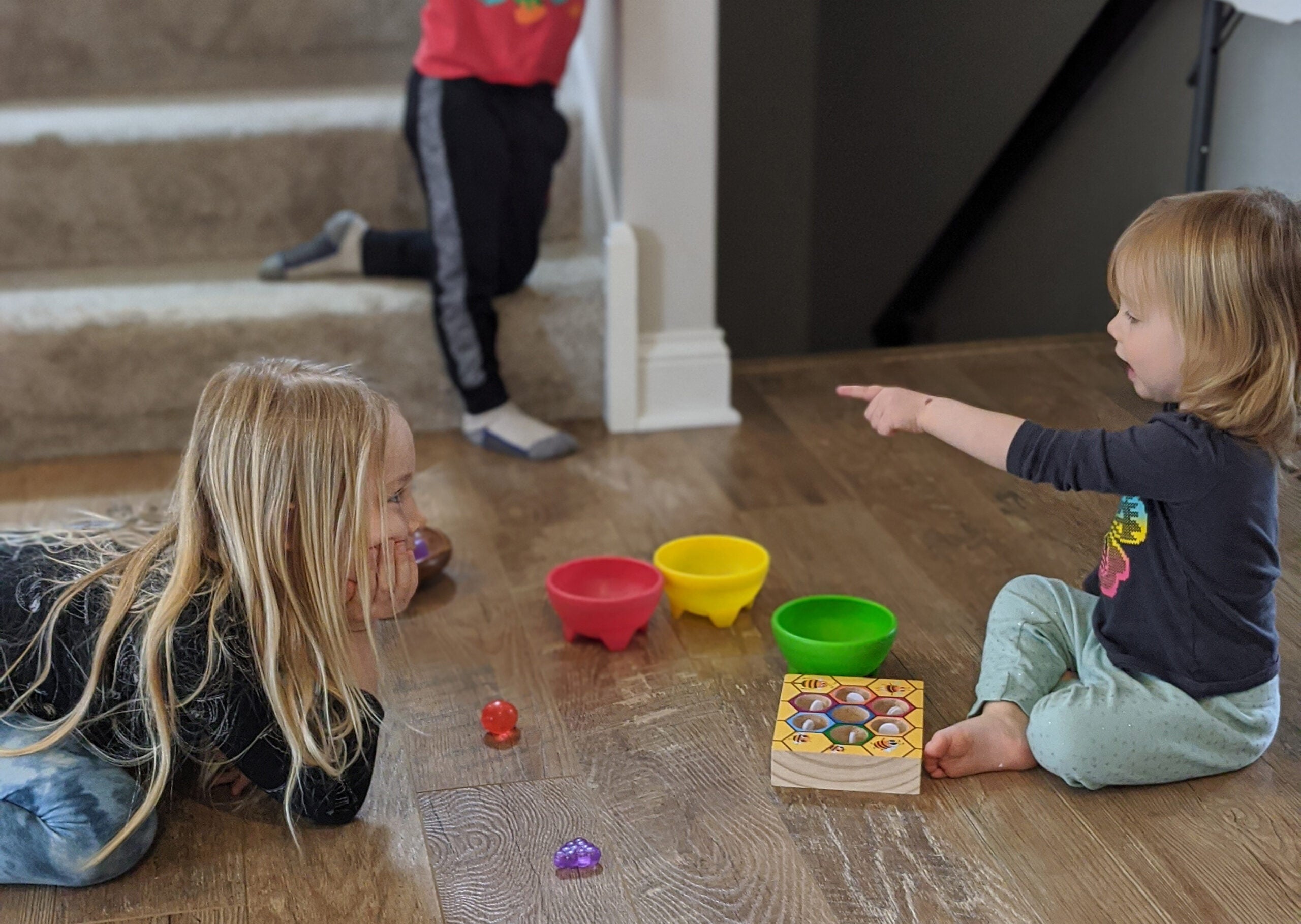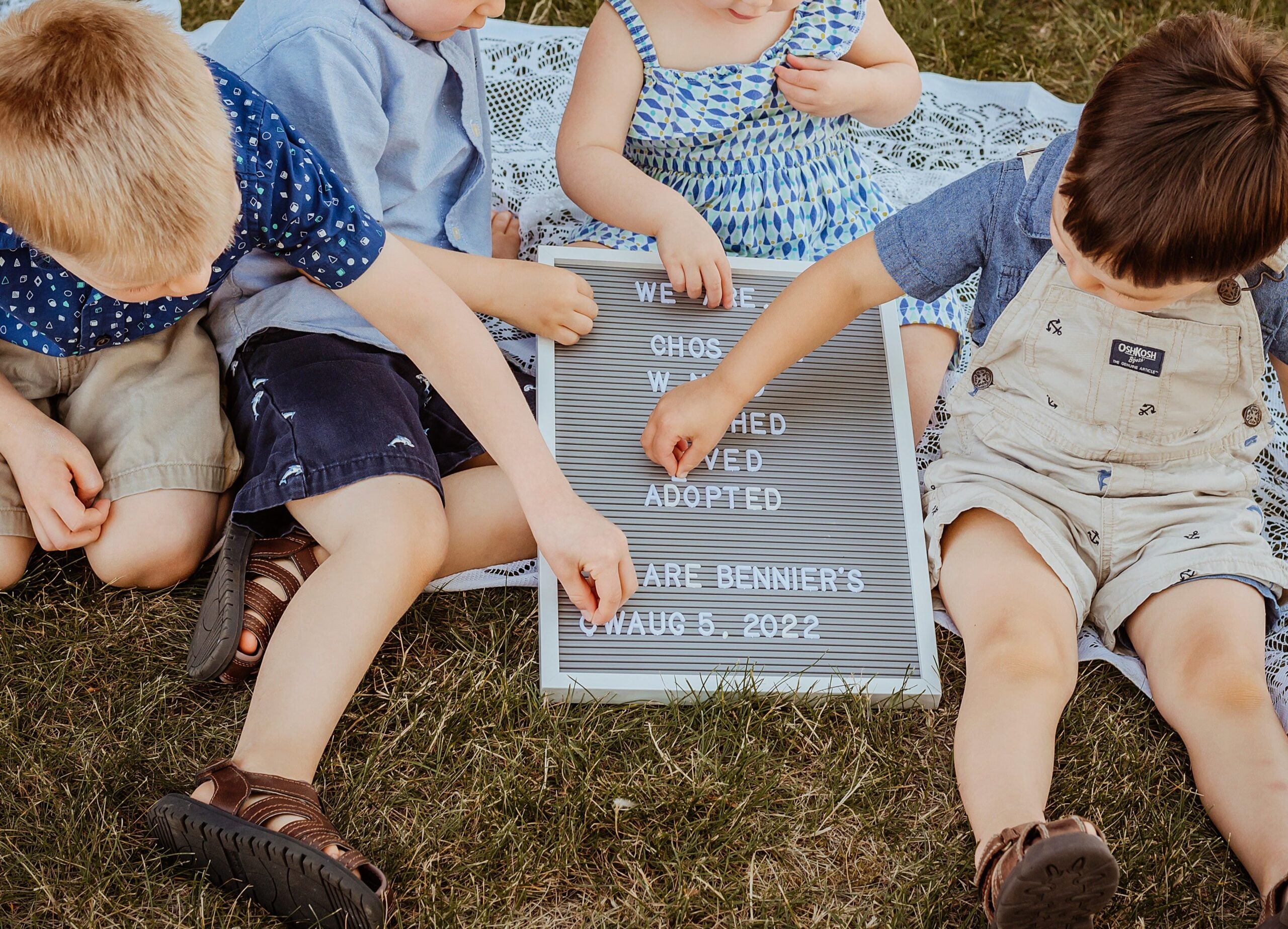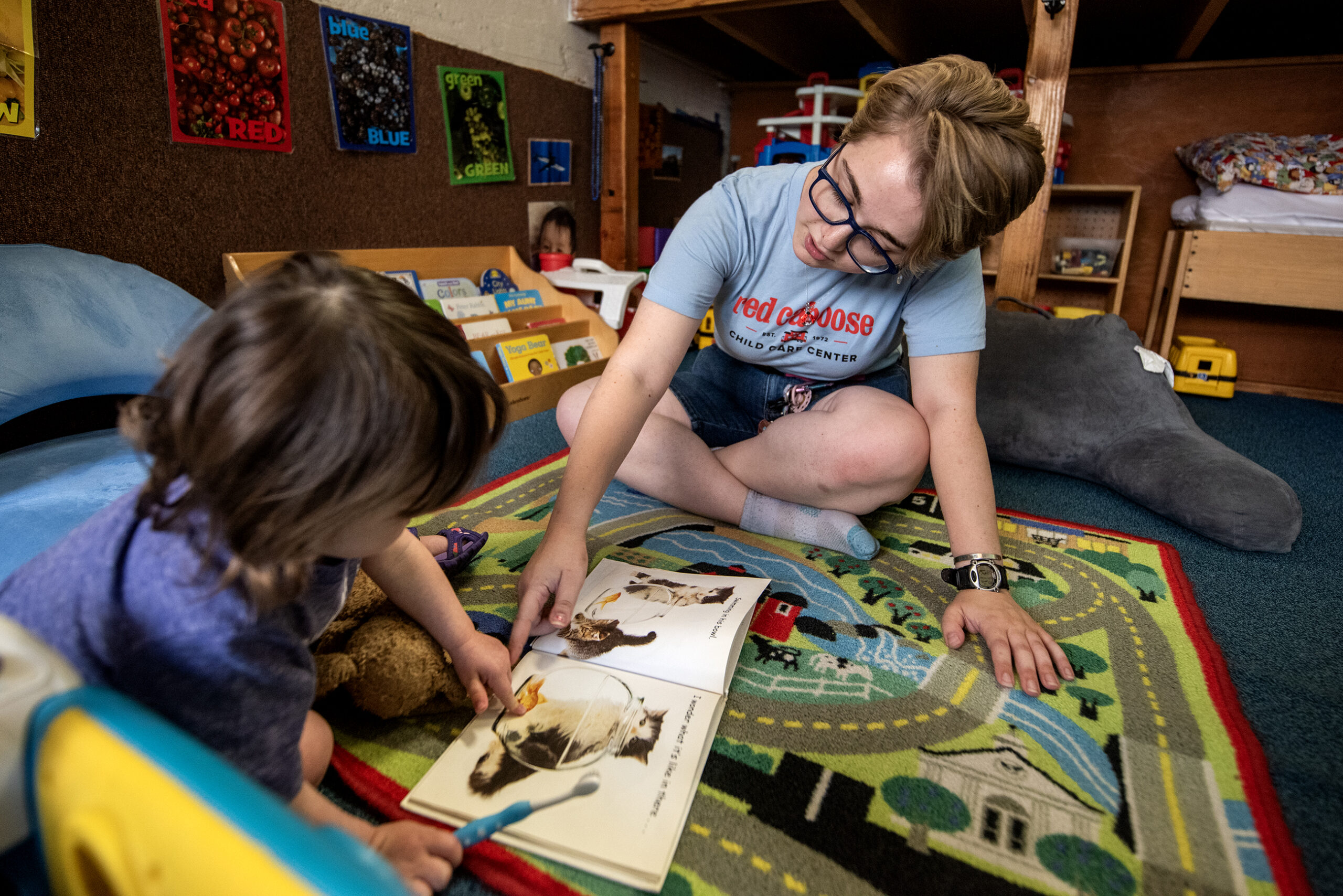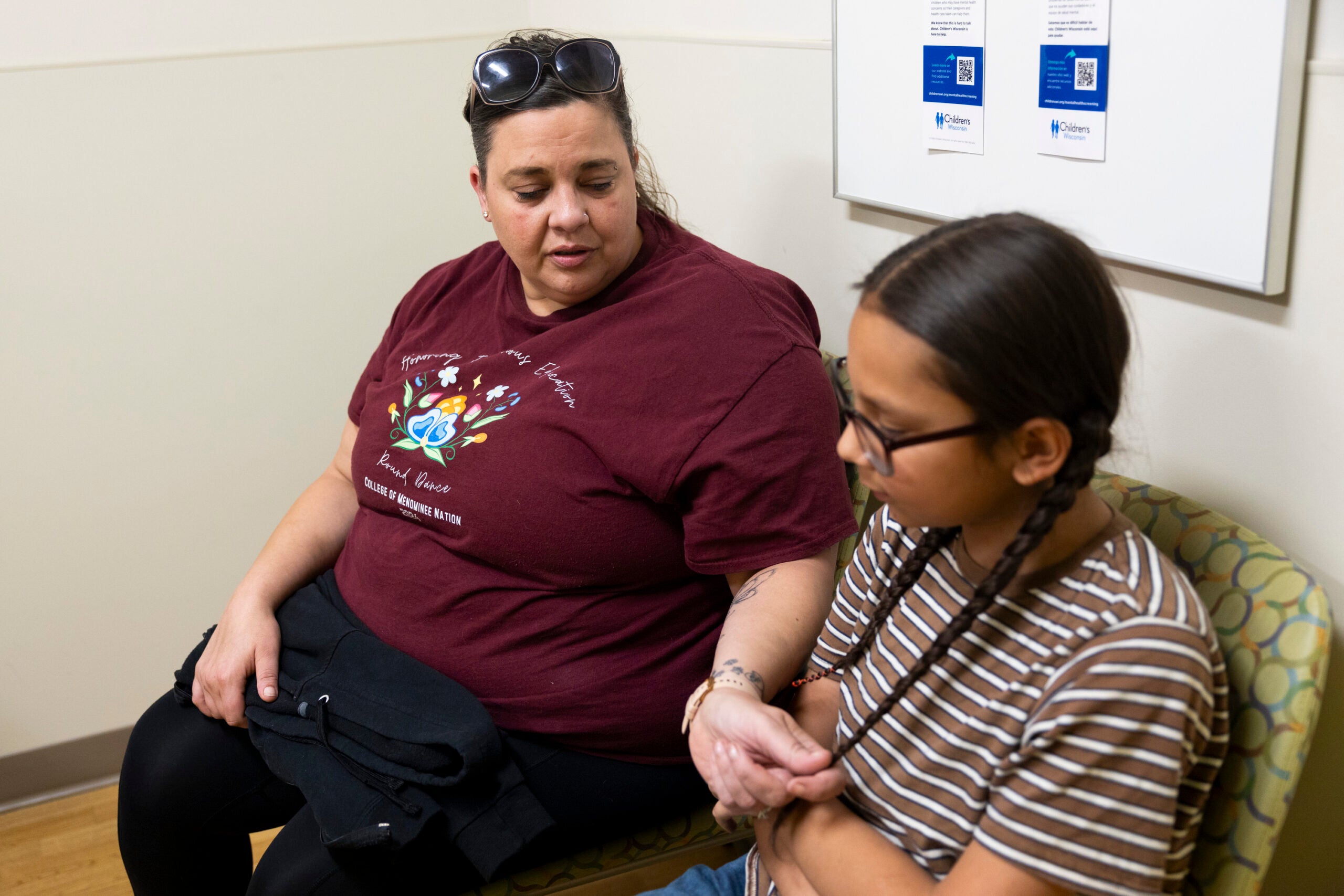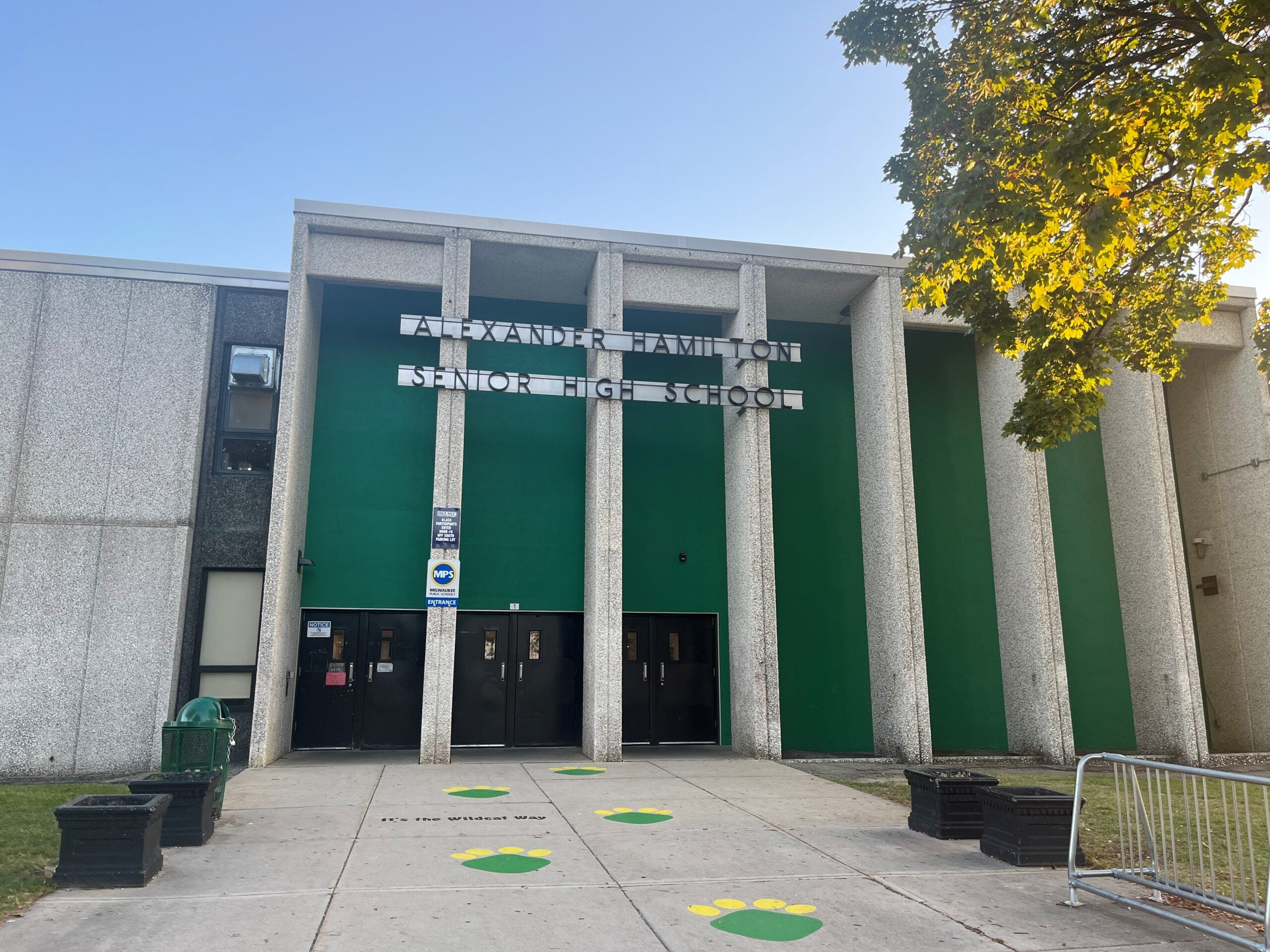Wisconsin parents are struggling with schools’ switch to online learning, and the constant presence of kids who would ordinarily be at school for much of the workday.
Even teachers, who are better trained and equipped to mold young minds, are having trouble teaching their own students, making sure their kids don’t fall behind, keeping their households up and running, and handling the stress of a global pandemic.
“I’ve brought home giant chart paper to keep us on a schedule of ‘This is when Mommy needs to be working, and this is what your expectations are,’ but I’m tired,” said Hudson-based second grade teacher Beth Fogarty. “It’s hard.”
Stay informed on the latest news
Sign up for WPR’s email newsletter.
Fogarty has three kids, ages 2, 5 and 7. She’s also providing distance learning work for her class of 25 second graders, while her husband works an IBM job out of his home office. Her lofty goals of sticking to a schedule have mostly fallen by the wayside.
“There’s lots of snacks, and there’s lots of breaks, and there’s lots of walking around,” she said.
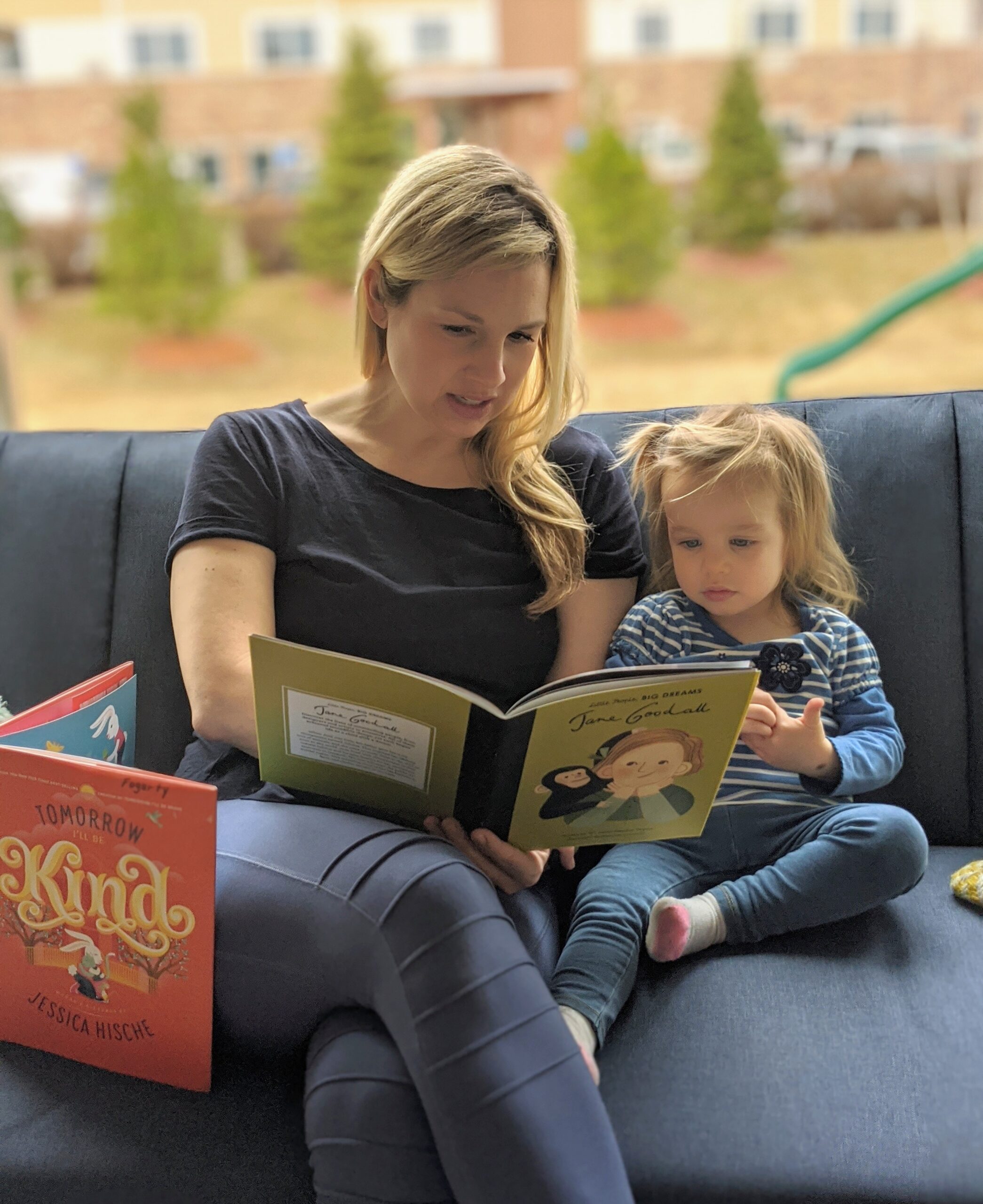
Melissa Garcia teaches high school Spanish in Janesville. She’s been juggling working from home while taking care of her two kids during the day — her husband, a mail carrier, is still leaving the house for work.
“There was a day where my husband came home from work and I put my shoes on and I just walked out, I was like, ‘I need a break,’” she said. “I just walked around the neighborhood for 30 minutes, but the whole time I was hearing like phantom cries like ‘Mommy! Mommy! Mommy!’ because that’s what I hear all day long, and all night long.”
One of her kids is 4, and was in day care before the pandemic stuck her and her kids at home. She’s been walking through school assignments with her third grader, and said she feels lucky to have developed a good rapport with his teacher before schools closed.
“I actually sent her an email not that long ago that was like ‘Ahh, this is too much work, I can’t do all of this with him — what should I be focusing on?’” she said. “There is no way that I can duplicate that third grade classroom for my son here.”
For students who had difficulty learning in a traditional classroom, learning independently from home is even more challenging.
Anna Mullen has two kids at Leopold Elementary in Madison, ages 7 and 8. Both were on specialized education plans — her daughter has PTSD, and her son is on the autism spectrum.
Mullen works 30 hours a week as an in-home caregiver, so she’s out of the house during what would be the usual school day. Her partner works an IT job from home, so he can keep an eye on the kids, but he can’t really help with lessons.
For her family, that’s meant online learning assignments just aren’t getting done.
“I come home and it’s like, well, this teacher wanted a Zoom meeting, they want me to update them how things are going,” she said, “and I haven’t even been able to log into the programs.”
She’s been trying to keep up with her kids’ learning in other ways. When she gets home from work, they go for walks, and spend more time outside. As they walk, she points out birds and explains their life cycles. They garden and read books — Dr. Seuss, Shel Silverstein and the “Curious George” books are particular favorites.
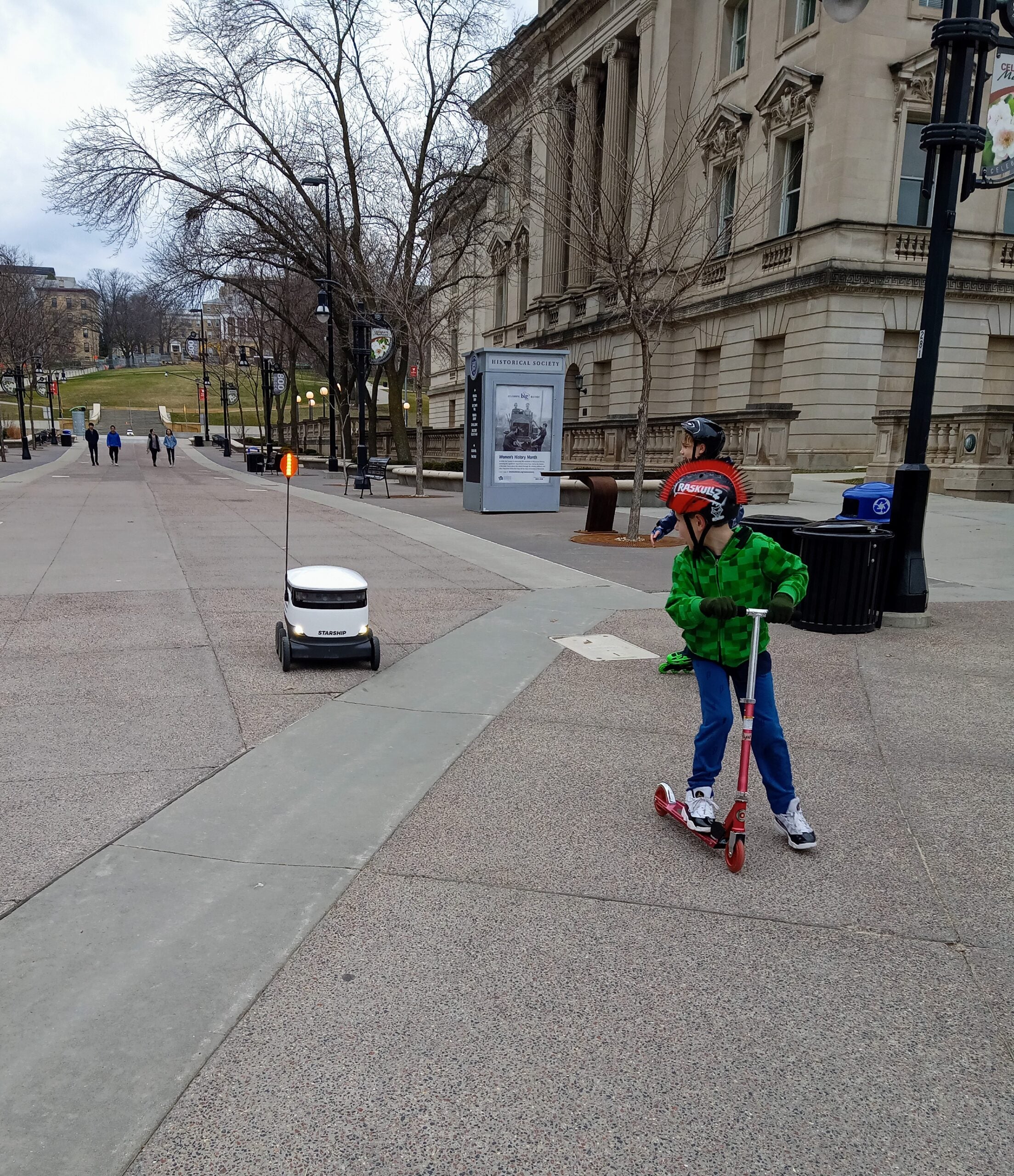
Her son and daughter are getting along better, and starting to spend more time together.
She’s also noticed a change in her kids’ behavior now that they’re out of classrooms, which could be overstimulating and stressful — particularly for her son.
“He has gone from saying rude words, hitting people, refusing to help with household chores in any way, to like hardly any meltdowns,” she said. “He’s asking people if they need help, he’s cleaning up without being asked — it’s like this weight has been lifted.”
Her daughter, though, is more social, and misses being able to see friends.
“She’s like ‘I’m bored, I want to talk to people, I want to do things with others,’” Mullen said.
Losing the social aspect of school, as well as play dates, sports and other after-school activities, has been particularly hard on kids.
Jenni Hofschulte works for Parents for Public Schools in Milwaukee, now from home. She has two kids. Her 19-year-old was working with AmeriCorps at Digital Bridge, but was recalled by the government and is now working with 211 from their home. She has another son in fourth grade.
Her younger son had been resistant to Zoom or FaceTime play dates at first, she said.
“And then the first Zoom we did with his two best buddies, he belly-laughed harder than I’d heard in days, he said it was so great,” she said. “And then like 20 minutes later, he looked at me and was like ‘I think that made it worse.’”
For Hofschulte, it’s been the non-school things that are particularly tricky. They’ve stopped by to visit his grandma — dubbed “Gosh” — and had to talk through the door. She’s tried to explain some things about the virus, but it hasn’t always gone smoothly.
“The first couple weeks, every time I’d ask him to take something outside, he’d hold his breath,” she said. “And I was like, ‘OK, we need to talk about that, because like you’re not going to catch it going to our recycling bin.’”
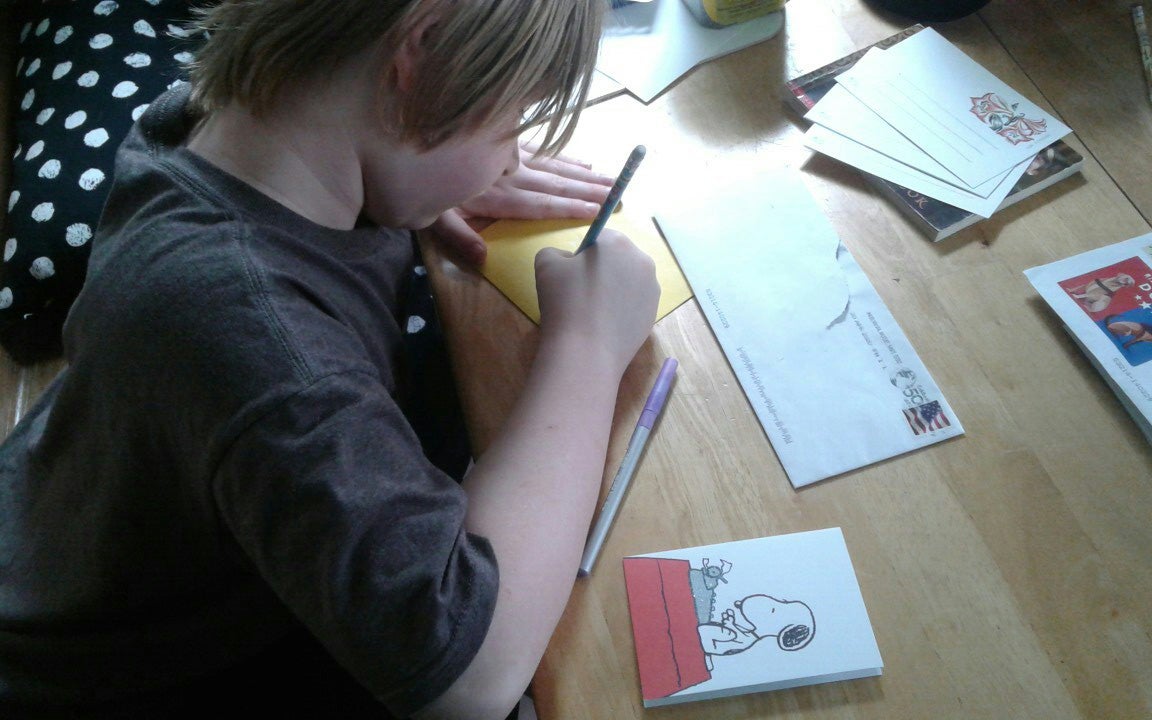
That’s been hard for Garcia, the Janesville Spanish teacher, as well.
Her husband is taking precautions after he wraps up his mail route — he comes in through the garage door, takes off his mail-carrying clothes in the garage and then heads straight to the shower.
“The 4-year-old didn’t quite understand, so when daddy came home, he wanted to run into his arms, and (his dad) was like, ‘Stop, let me take a shower,’” she said. “Now he’s gotten into the habit, he’ll say ‘Can I touch you?’ even on Sundays, when his dad doesn’t work.”
With schools canceled through the end of the year, and some districts already contemplating limited or virtual summer school, Wisconsin students are looking at a lot more time away from the classroom, as well as their friends.
Parents, too, are settling in for the long haul of balancing their kids’ distance learning with their own work schedules, along with limited access to the usual supports of day care, trading play dates and handing kids off to family members.
Garcia said summers for her family usually include swim lessons and day camps for the kids, which are likely off the table this summer. Without that relief ahead, she’s taking things one day at a time.
“Some days, you’re doing really good because you got out of bed and you took a shower and you made meals, and other days you’re doing really good because I didn’t scream at my kids, and nobody had a tantrum,” she said. “The hope in my house is always that tomorrow will be better — we’ll take it as it comes, and try to love one another and enjoy each other’s company.”
Editor’s note: WPR’s Rob Mentzer contributed reporting to this story.
Wisconsin Public Radio, © Copyright 2025, Board of Regents of the University of Wisconsin System and Wisconsin Educational Communications Board.
